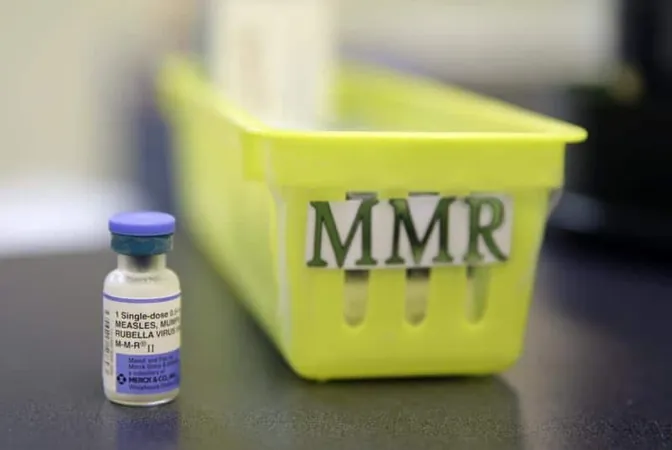
The Shocking Truth Behind Men's Reluctance to Visit GPs
2025-04-21
Author: Emily
Why Do Men Avoid Doctors? A Revealing Examination
Delaying a doctor's visit can be dangerous, as one man learned the hard way. Meet Dan Somers, a 43-year-old from Ipswich, who faced severe health issues yet hesitated to seek help until his wife urged him. After enduring unbearable pain, he was diagnosed with a gallbladder infection, prompting a week-long hospital stay. His experience highlights a troubling pattern of men avoiding medical care.
The Disparity: Men's and Women's Healthcare Engagement
Statistics show that men tend to shy away from General Practitioner (GP) visits compared to women. According to a recent NHS survey, only 33.5% of men contacted their GP compared to a staggering 45.8% of women. This trend is echoed in various health behaviors, with men also less likely to manage routine health checkups and less engaged in preventive care.
Toughen Up: Societal Pressures and Masculinity
Experts reveal that societal expectations play a critical role. Nearly half of the men surveyed felt pressured to 'tough it out' regarding health issues, associating vulnerability with weakness. This perspective often discourages men from addressing serious symptoms, perpetuating a cycle of health neglect.
The Problem-Solving Mindset: A Barrier to Seeking Help
Kevin McMullan, working with men's mental health charity ManHealth, identifies a common mindset among men: viewing health issues as problems they should solve themselves. This attitude significantly affects their likelihood of seeking assistance. Men often end up self-managing conditions rather than consulting a healthcare professional, further exacerbating health issues.
Shocking Realities: Late Diagnosis Stories
The saga doesn't end with avoidance. Take Jonathan Anstee, who faced a harrowing diagnosis of stage four bowel cancer after dismissing earlier symptoms. His reluctance to seek help and ongoing belief that doctor visits were 'a waste of time' became a fatal misstep. His advice? Don't let embarrassment keep you from seeking help—it could cost you your life.
Connecting Through Support: A New Era for Men's Health?
With the rise of support groups, there's hope for changing men’s attitudes toward health care. Founded after a personal battle with bowel cancer, The Cancer Club provides a platform for men to share experiences and receive encouragement. Initiatives like this aim to create a community that reduces stigma and promotes seeking help.
The Path Ahead: Redesigning Healthcare for Men
Experts urge a redesign of the healthcare system to better fit men’s needs. Flexible access and more proactive support structures could encourage better engagement. Scholars believe that integrating regular health checks for younger men could normalize doctor visits, ultimately leading to improved health outcomes.
In conclusion, it’s clear that awareness and cultural shifts are vital for improving men's health. As more initiatives emerge, the hope is that more men will feel empowered to take charge of their health before it’s too late.









 Brasil (PT)
Brasil (PT)
 Canada (EN)
Canada (EN)
 Chile (ES)
Chile (ES)
 Česko (CS)
Česko (CS)
 대한민국 (KO)
대한민국 (KO)
 España (ES)
España (ES)
 France (FR)
France (FR)
 Hong Kong (EN)
Hong Kong (EN)
 Italia (IT)
Italia (IT)
 日本 (JA)
日本 (JA)
 Magyarország (HU)
Magyarország (HU)
 Norge (NO)
Norge (NO)
 Polska (PL)
Polska (PL)
 Schweiz (DE)
Schweiz (DE)
 Singapore (EN)
Singapore (EN)
 Sverige (SV)
Sverige (SV)
 Suomi (FI)
Suomi (FI)
 Türkiye (TR)
Türkiye (TR)
 الإمارات العربية المتحدة (AR)
الإمارات العربية المتحدة (AR)